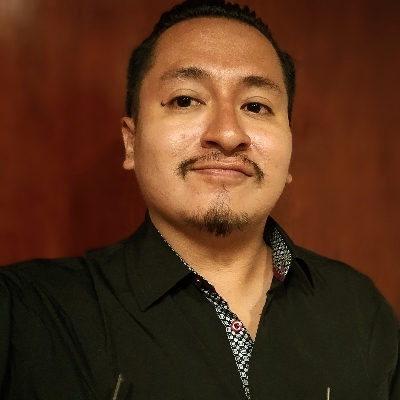Editor’s Note: The following texts are available in the original Portuguese and in translation to English and Spanish. Scroll down to read in Portuguese and English, and click “Español” to read in Spanish.
Retomada originária
Vamos falar a verdadeira história
Que os colonizadores escondem
Nas estátuas erguidas por todo Brasil
A pátria que não nos pariu.
Carrego a memória de um povo
As muitas vozes dos meus avós
Meu destino é ser onça?
Vivo e respiro com meus antepassados
Os velhos retornam para cumprir seus destinos
Da Amazônia ao Pará,
Do Pará a Salvador,
De Ilhéus ao Rio de Janeiro
Por todo litoral
Somos tuba ypy abá
Somos Tumpinambá
Os Primeiros
Uma grande família do tronco Tupi
Prazer me chamam de Aracy
Sou Ara Tykyra do clã de Maria Laurinda da Conceição,
Morta com uma bala no peito
Na nossa pele dizem que mestiçagem pode ser um defeito
Recebemos muitos nomes ao longo da caminhada
Em busca de uma Terra Sem Males
Os verdadeiros heróis foram esquartejados
E até em paredes seus ossos cimentados
No cai eu vi pretos novos
Jovens trazidos de longe que nunca mais viram suas famílias de novo
Fizeram de todos os povos originários objetos do mundo novo
Fetiche de antropólogos, missionários e romancistas
Hoje apenas o currículo lattes dos grandes especialistas
No porão da ditadura
Guardam segredos
Os sete pecados do indigenismo
Guardam segredos
Os sete pecados do indigenismo
De extermínios, roubos, estupros, mortes e torturas,
Daqueles que não tiveram medo.
Embaixo e em cima dos concretos
Vozes desejam liberdade
Mas alguns religiosos agem com iniquidade
Apesar da idade
O sono é apenas dos justos.
A insônia é dos mutilados
A terra geme um grito abafado
As paredes são muros de pele e ossos.
O que os políticos querem é comprar os seus votos
O crochê deles é feito com pedaços de muitos corpos
Assassinados
Pelo legislativo, judiciário e executivo
Do Brasil A pátria que não nos pariu.
Abro a mordaça
Rasgo a couraça
Quebro o concreto
Tenho fome de essência
Faço da cultura minha ciência
Nossa raiz é resistência e identidade
Voz um caminho para a liberdade.
Ancestral Recovery
Let’s tell the true history
Hidden by colonizers
In the statues raised all across Brazil
The nation that did not give birth to us.
I hold the memory of my people
The many voices of my grandparents
Is it my fate to be onça?
I live and breathe with my ancestors
The elders come back to fulfill their destiny.
From Amazonas to Para
From Para to Salvador
From Ilheus to Rio de Janeiro
Across all the coastline
We are tuba ypy abá
We are Tumpinambá
The first ones
A big family from the Tupi’s trunk
It’s a pleasure, you can call me Aracy,
I am Ara Tykyra from the clan of Maria Laurinda da Conceição
who died of a bullet in the chest
They say mestizaje can be a mistake on our skin
We receive many names along the road
Seek a Land without Evil
The true heroes were dismembered
And their bones were even piled against the walls
I saw new black people at the port
Teenagers brought from far away who will never see their families again
All the First Nations were converted into objects of the New World
Fetish of anthropologists, missionaries and novelists,
Today, only the CV lattes of great scholars
In the attic of the dictatorship
Keep secrets
The seven sins of indigenism
Of the Non-Protection of the Indian Service
Founded in the Figueiredo Report,
Extermination, robberies, rapes, deaths and tortures,
against people who were never afraid.
Up and above the concrete
Voices cry for liberty
But some priests act unjustly
In spite of age
The dream is only for the righteous.
Insomnia is for the mutilated
The land gives an oppressed scream
The walls are structures of bones and skins.
What politicians want is to buy your votes
His crochet is made with parts of many bodies
Killed by the Legislative, Judicial, and Executive branches
Of the Brazilian Nation
The nation that did not give birth to us.
I open the gag
I scratch the shield
I break the cement
I am hungry for the essence
I make of the culture my science
Our root is identity and resistance
sounding a road to independence.
Originally published in Poesia indígena hoje, No. 1, 2020
Matriarcal cunhã
Voces acham que me podem ver?
Voces acham que me pdoem ver?
Sou penumbra
luminosidade
o canto do povo e sua liberdade
na mão carrago afetividade
sou sangue que jorra da rua, fazenda e comunidade
seu coração sangra de mentira
o meu é morto todos os dias e renace
não sou a índia potyra
sou Aratykyra
então pode atirar
uma arma na minha cabeça
não foi capaz de me matar
eu disse atira, atira
não importa quantas vezes eu tombar
sempre vou retornar
sou as marcas da violência
sou as cicatrizes de viver
sou o espelho de justicia da terra
não da igreja
sou tempestade que vai destruir o concreto
e os frios olhares da cidade
não sou o sono dos justos
não durmo
sobrevivo por todos prisioneiros do afeto
sou todos que sentem dor, amor, raiva, compaixão
sou quem caça os senhores de escravos
sou todos que que queiman e explodem nos cemitérios
clandestinos na omissão
exterminam e comem gente viva
acham que podem costurar o tamanho da ferida?
esperam que sejamos passivas, calmas, calmas, obedientes,
silenciosas
mulheres não são humanas
sao onças, serpentes, águias
eu sou um animal não domesticado
não faço o que querem
sou devota do que desejo
difícil de seduzir ou induzir
eu teço a teia dos sonhos
sou uma guardadora de sementes
árvore antiga de pé
ainda Aracy, mãe do dia, do amanhecer dos pássaros
sou a fé que carregam no peito, para cantar, gozar e
sentir
eu compartilho encantaria
é preciso saber me invocar
para fazer o mundo como conhece desabar
eu estou fora do tempo
não tenho tempo
tenho uma faca apontada para meus olhos
Matriarchal Cunhã1
Do you believe you can see me?
Do you believe you can see me?
I am the darkness
The Brightness
The chant of the community and its freedom
I hold feelings in my hand,
I am the blood that emanates across the street, the master house, and the village
Your heart bleeds falsely
And mine dies every day and is reborn
I am not the Potyra Indian
I am Aratykyra
So you can shoot
A gun at my head
You can’t kill me
I said shoot, shoot
It does not matter how many times I fall
I will always return
I am the traces of violence
I am the scars of living
I am the mirror of justice on the Earth
And not in the Church
I am the tempest that will destroy the concrete
And cold eyes of the urb.
I am not the dream of the righteous
I don’t sleep
I survive in the name of the prisoners of care
I am all the people who feel tribulation, love, rage, compassion
I am the one who hunts the slaveholders
I am all the people who fire and explode in secret
Cemeteries of omission
They kill and eat living beings
Do they believe they can suture a wound this size?
They expect we will be passive, obedient, compliant,
Silent
Women are not human beings
They are onças, serpents, eagles
I am not a domesticated animal.
I don’t do what they want.
I am devoted to my desire
Hard to seduce or persuade
I weave the textile of dreams
I am the guardian of seeds
An ancient tree that stands on its feet
Who is still Aracy, mother of the day, of the birds’ dawn
I am the faith they have in their breast for singing, enjoying
And feeling
I share the enchantment
You must know how to invoke me
For demolishing the world as you know it
I am out of time
I have no time
I have a knife aimed at my eyes
From the book As 29 poetas hoje, edited by Heloísa Teixeira (Companhia das Letras, 2021)
1 In the Tupi language, “Cunhã” means “Indigenous woman.”
Translated from Portuguese to English by Christian Elguera



